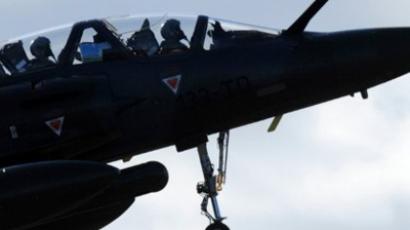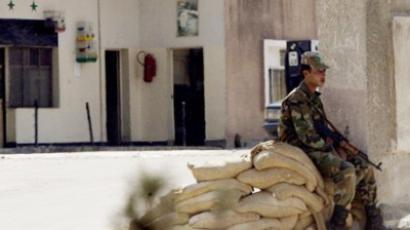Lights. Camera. Faction! NATO's pressure on war-press
Massive civilian casualties and failure to finish the job in Libya have turned opposition to NATO's invasion into open anger at the intervention, and at manipulation of media coverage of the conflict.
Watch Western TV and you would think all Libyans were thrilled with NATO's bombing of their country. Those who have visited Libya are hearing a very different story.“They were just insulting Sarkozy, they were wondering, ‘why are they bombing us?’ They had no idea what was going on,” recalls Fred Dahlmann, an observer with the international mission to Libya.Some of the French media who have been acting as cheerleaders for NATO and Sarkozy’s bombing campaign have left themselves open to charges of a conflict of interests – or, indeed, of shared ones. As journalist and author Simon De Beer points out, “Le Figaro is owned by the guy who builds the planes Sarkozy is bombing Libya with.” The leading French newspaper belongs to Serge Dassault, maker of the Dassault Rafale, France’s principal attack jet in Libya. As NATO continues to battle alongside transitional government forces to secure the last pro-Gaddafi strongholds of Sirte and Bani Walid, some believe that is far from the end of the story. “It is of course rather easy to win the battle, but not the war,” warns Ludo De Brabander from the Vrede Peace Movement. “So even with the fall of Sirte and Bani Walid maybe soon, that doesn't mean victory for NATO or the Transitional Council. It depends in which way the rebel government is supported by the population.”People in Libya say the thousands of civilians killed are turning the population against NATO. And that is why the West still cannot declare victory despite many months of bombing. With the fighting not yet over in Libya, Washington and Brussels are now setting their sights elsewhere, pressing for a UN resolution against Syria, similar to the one that gave the green light to the intervention in Libya. But how can the West lecture Damascus, asks former Belgian Senator Pierre Galand, after the humanitarian catastrophe it has just caused?“We have double vision: one vision in Syria and crimes against humanity, and quite another vision in Libya with the 10,000 civilians dead – and yet, that is a ‘war of liberation,’” exclaims Galand.NATO stands accused of turning a blind eye to huge civilian casualties in Libya. But that approach may come back to haunt the alliance, as the people at the sharp end of the intervention count the cost of their losses and grief.














